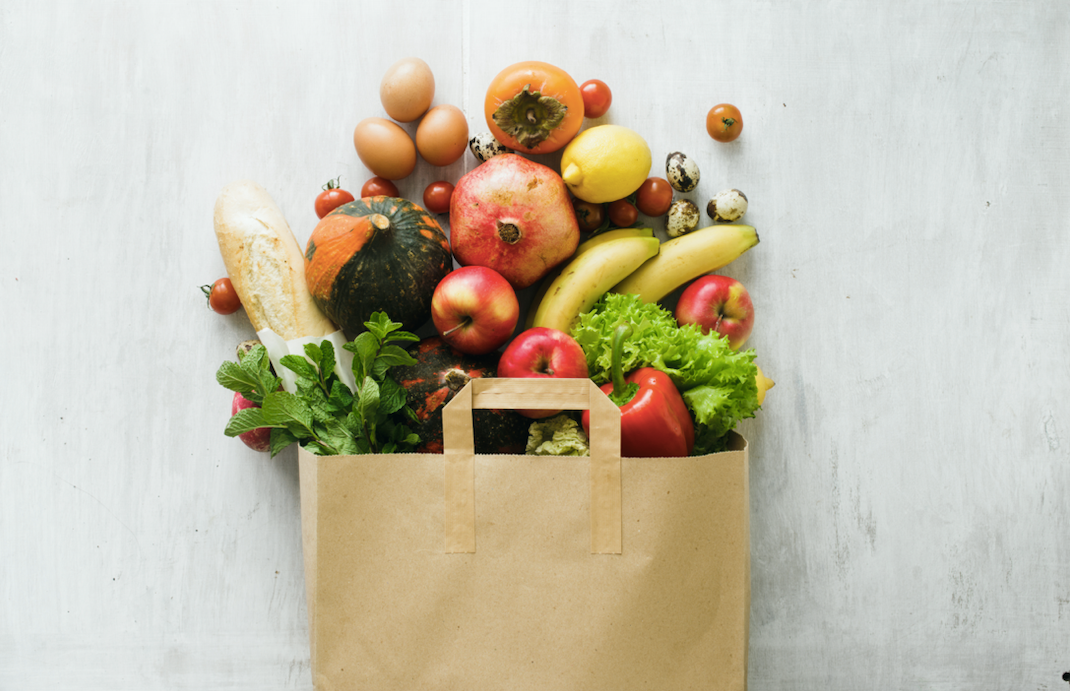
Brief Introduction:
I was born and actually live in Puerto Rico, where I also began my career. I obtained a Bachelor’s Degree in Nutrition and Dietetics from the University of Puerto Rico, Rio Piedras Campus, and a Master’s Degree in Public Health from the University of Puerto Rico, Medical Sciences Campus. I’ve been a Registered Dietitian for over 15 years now.
How did you become passionate about healthy eating?
I struggled with anorexia nervosa as a teenager, so I was constantly reading about food and nutrition. I eventually recovered, and it sort of led to choosing a career in Dietetics while I was still in high school. I also learned that restrictive diets are not the answer, and I believe it’s time to start focusing more on our health and well being than on weight loss. I’m passionate about learning how to eat well, developing a healthy relationship with food and adopting good lifestyle habits, since that’s what’s really going to help us achieve long lasting positive changes in our health.
If you could persuade people to change three things about their diet during these challenging times, what would they be?
- Stop following fad diets, since they’re usually not nutritionally appropriate
- Honor your hunger cues, but also make sure to listen to your body to make sure you’re not just eating out of boredom or stress
- Stop moralizing foods such as “good” or “bad”. Any food can be part of a healthy diet, it’s just a question of balance.
Most of the world is practicing social distancing and working from home, how important is it to hydrate while doing so?
Water is necessary for almost all bodily functions, such as:
- Bringing nutrients and oxygen to the cells through the bloodstream
- Dissolving nutrients so that the body can absorb them
- Maintaining an adequate balance of fluids inside the body
- Keeping the joints lubricated
- Keeping skin healthy
- Regulating body temperature
- Helping the kidneys eliminate waste
- An integral part of the digestion process
- Helping prevent constipation.
What are 3 at-home x kitchen must haves for people practicing social distancing?
- I love my air fryer, since it’s not just great for “frying” without oil, but for cooking, baking and reheating foods quickly.
- Slow cooker, since you can just dump the ingredients in and it does the cooking for you. Plus, since slow cooker meals tend to yield larger quantities, it’s a great way to have some healthy leftovers for the next day which = less cooking
- High speed blender for making fruit and vegetable smoothies, one of my favorite healthy snacks. Just put the ingredients in, blend and done.
What are 5 ‘must stock’ foods each of our readers should stock up on from the grocery store during social distancing?
- Canned beans and legumes
- Frozen fruits and vegetables
- Canned salmon
- Nuts
- Oatmeal
They’re all shelf stable, nutritious, budget friendly and very versatile for preparing different types of meals.

What are some ways to boost your immunity amid the coronavirus outbreak?
-
Make sure to include a wide variety of nutrient rich foods in your diet: fruits, vegetables, whole grains, lean meats, fatty fish, beans and legumes, nuts, seeds and plant based oils.
-
Try to include from 5-9 servings of fruits and vegetables daily.
-
Avoid processed foods as much as possible. This includes pre-packaged, convenience items such as microwave meals, ready to eat meals, snack chips, sweet snacks, juice drinks, canned meat products, processed cheese products, etc.
-
Eat more fermented foods such as yogurt for better gut health and a healthier immune system

Any at-home detox recipes or secrets?
The body detoxes itself without any external help, but we can certainly support this function. Drinking enough water is one of the best things we can do. It helps prevent fluid retention. It also helps the kidneys in eliminating metabolic wastes more efficiently. This results in more urine output, therefore, less swelling and bloating. Drinking enough water also helps prevent constipation, therefore supporting waste removal from the digestive process.

What is your favorite quarantine snack?
Vanilla Greek yogurt. It’s not only filling due to all the protein, but you can also add healthy toppings such as chopped fruit, nuts or even bits of dark chocolate to make it even tastier and get more nutrients in there.

What’s one simple plant-based dish our readers can recreate at home, less than 30 minutes and eat multiple times throughout the week?
I love making veggie filled hummus wraps. I use spinach tortillas and fill them with hummus and chopped veggies I have on hand (fresh spinach, shredded carrots, cabbage, tomatoes) plus feta cheese crumbles. It's filling due to the protein in the hummus and cheese, and the fiber in the veggies and hummus. Plus, it’s made in a snap and tastes great!
Plant based living is becoming more and more popular. When eating a mostly plant based / vegetarian diet, are there certain foods to focus on to make sure we’re getting enough nutrients and protein?
From a dietitian’s perspective, plant based diets need to be well planned in order to be nutritionally complete. Nutrients such as iron, zinc, vitamin B-12, calcium and vitamin D are not present in large amounts in plant-based foods, and care must be taken to avoid nutritional deficiencies. Plant-based proteins are also not as bioavailable as animal proteins. It is imperative that protein sources be well planned into the diet in order to avoid protein deficiency. This position paper from the Academy of Nutrition and Dietetics explains that “Protein from a variety of plant foods, eaten during the course of a day, supplies enough of all indispensable (essential) amino acids when caloric requirements are met. The regular use of legumes and soy products will ensure an adequate protein intake for the vegetarian, as well as providing other essential nutrients.”
Do you have any plant-based nutrition tips to fight coronavirus?
I can’t give any specific coronavirus advice since we’re still learning how this virus behaves. But as for overall, plant based nutrition tips, I can say that as a nutrition professional, I fully believe that leaning more towards a plant-based dietary pattern can have powerful health benefits. One doesn’t even have to become fully vegan to reap its benefits. One helpful tip is to try to cut back on half the meat you usually eat and include more foods such as beans and legumes, nuts, seeds as plant based protein sources.
Speaking of plant based, what are some of the benefits of drinking chlorophyll water / benefits of liquid chlorophyll?
There is some evidence that links consuming chlorophyll with cancer prevention, but there is not enough evidence to support this claim. It's not clear whether it’s the chlorophyll per se, or any of the other phytochemicals found in fruits and vegetables, that are related to cancer prevention. Since chlorophyll has some antimicrobial activity, some animal studies have shown that it can help combat harmful bacteria while maintaining the healthy bacteria in the digestive system.

What’s one of your favorite organic/natural supplements or vitamins you recommended?
I don’t recommend supplements unless there’s an underlying nutritional deficiency, but I do recommend regular consumption of green tea. Some studies have reported that tea catechins (which are disease-fighting flavonoids and antioxidants in tea) can inhibit the replication of the influenza virus and were also effective against some cold viruses. In addition, tea catechins may also enhance immunity against viral infections. Aim for 3-5 cups a day.
What are three things you are most grateful for during these uncertain times?
-
That I get to spend more time with my kids
-
I can disconnect from the daily frenzy and focus on the here and now
-
I realize that there’s so much “stuff” we don’t really need, like mindless shopping and constantly going out. Being at home, grateful for all the things you do have, can be so peaceful and satisfying.
During these uncertain times how do you stay positive? What’s your secret?
Taking things one day at a time, ignoring the fear-mongering information out there and listening to the real, credible sources, and looking at this as an opportunity to practice more self care and gratitude (as trite as it sounds, these things really do get lost in our hectic, daily routines).
Any self-care, self-care or self-development tips for our readers?
Remember that self care isn’t selfish. When we put ourselves last, we’re so drained of resources that there’s not much to give others. So scheduling out some “me time”, even if it’s just going for a walk or taking a few minutes for deep breathing, definitely needs to start becoming a part of our daily lives from now on.
Any favorite health / nutrition podcasts or books you recommend to our readers?
As an anti-diet dietitian, I recommend Christy Harrington’s Food Psych, which is aimed at helpingyou make peace with food and your body.
Where can our readers find you? (Instagram, Facebook, etc)
Website: Fad Free Nutrition Blog
Instagram: @fadfreenutritionblog
Facebook: @fadfreenutritionblog
Anything else you want to add? Any other health, wellness or nutrition tips?
Stay safely at home as much as possible, view this uncertain period as an opportunity to reflect on how to become a better version of yourself and what things are most important to you, and don’t forget to wash your hands frequently! 😉



